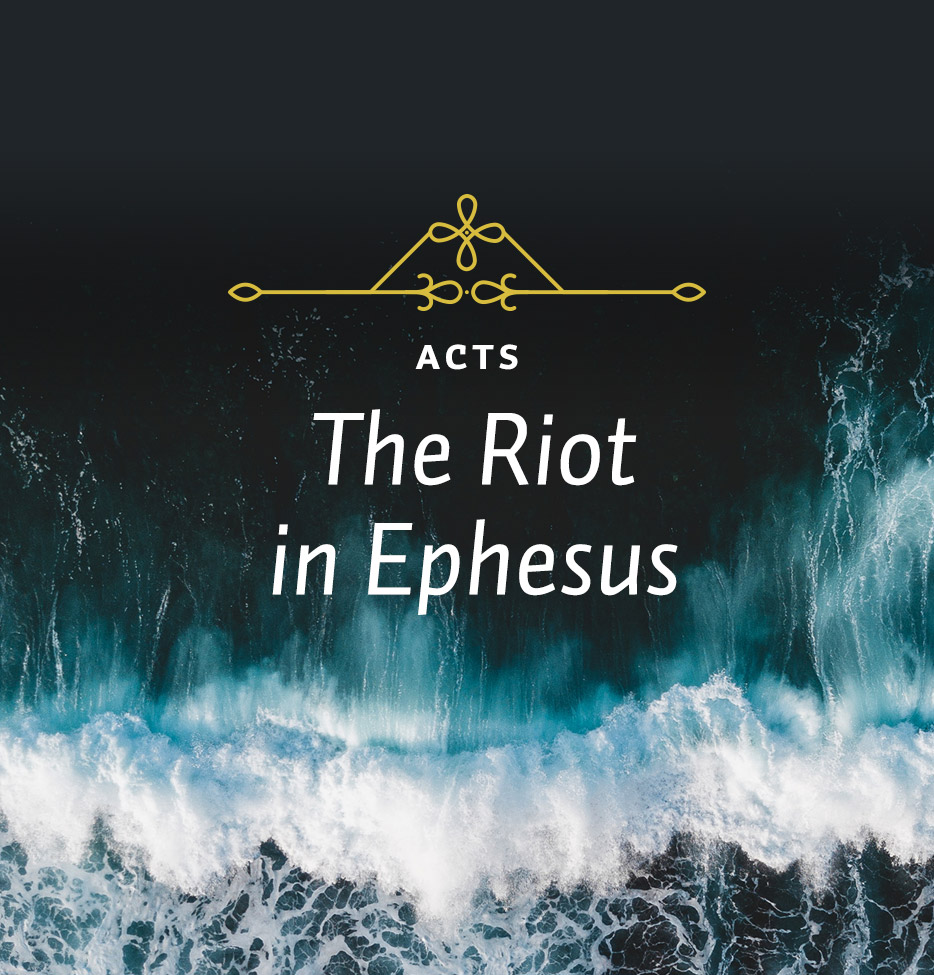What was the outcome at Ephesus? For one thing, the Christians were vindicated. Paul was not attacked, and he was eventually able to leave Ephesus, seemingly without any trouble. To us that may seem somewhat incidental, but it was not incidental to Luke since he records in detail (as he did at Corinth, where Gallio would not listen to the accusations brought against Paul) how Paul and the Christians were vindicated. Those who were in charge said, “These people have done nothing wrong.”
Luke reports the speech in which the city clerk quelled the riot and dismissed the citizens in some detail. He makes four points: 1) Everyone knows that Ephesus is the guardian of the temple of Artemis. Since this is so and no one can deny it, there is no point to this disturbance. 2) These men (Gaius and Aristarchus, who had been dragged into the great amphitheater) are guilty neither of sacrilege nor blasphemy. They are innocent. 3) If there is a case to be made, Demetrius and his colleagues in the silversmith guild know the proper legal way to make it. They are not behaving properly. And 4) We are in danger of being charged with civil disorder because of this riot. If we are charged, we will not be able to justify today’s conduct.
That speech was important to Luke for this reason. If we look ahead to the end of Acts, we find that the Apostle Paul is not dead, though we might have expected that this would be the way the book would end. Rather, Paul is in prison in Rome, awaiting trial. Given those circumstances, one of the purposes Luke had in writing Acts must have been to provide an apologetic for his friend. So he records very carefully—as we would say, probably “to establish legal precedent” by examples from around the Roman world—that Paul had repeatedly been declared to be innocent. Moreover, Christianity had been recognized by various officials to be no threat to Rome.
Christians were not always vindicated, of course. Many have died for their profession. But they were willing to die precisely for the reason we have been studying, namely that they looked beyond this life to the life that is to come. They judged that what was going to happen to them in the life to come was far more important than anything that could happen to them here. So they were willing to suffer here for that surpassing weight of glory. Because they were willing to do that, Christianity triumphed.
And Artemis? Well, it is no exaggeration to suggest that there is not a soul living in the world today who worships “Artemis of the Ephesians,” while there are millions who worship Jesus Christ and would willingly die for him.
How did Christianity triumph? How did Christians win the day? It was not by appealing to numbers. It was not by a play on the emotions. The Christians did not circulate a petition saying, “Artemis is no goddess, and the God of the Old Testament is the true God” and see if they could get fifty-one percent of the Ephesians to sign it. The Christians did not have a mass rally. They did not send Christians into the amphitheater to do their thing, the way Demetrius and his crew had gotten people together to do his thing.
They didn’t sing emotional songs. They did exactly what Jesus Christ had done and what He had sent them into the world to do. They preached the Gospel so that men and women got converted, and once they were converted, they taught them how to live for Jesus Christ.
Do you want to make an impact on the world today? That is the way. It is by teaching the Word and by following hard after Jesus Christ. It does not take large numbers. A small group can do it. Many small groups have.






